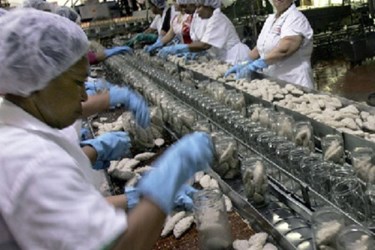Building A Culture Of Food Safety By Shaping In-Plant Behavior
By Isaac Fletcher, contributing writer, Food Online

With FSMA changes looming on the horizon, there is no better time to encourage in-plant behaviors that create a culture of food safety and build a foundation for a preventive approach to food safety-related events.
One of the most significant factors in successfully accomplishing FSMA’s goal of taking a preventive approach to food safety will be the individuals working across sectors of the food industry. Everyone along the supply chain, from top-level managers to in-plant employees has a role to play in enhancing food safety in accordance with new regulations.
Many, if not most, food safety issues occur as the result of some sort of human error. This could be anything from employees not adequately washing their hands, to not properly monitoring temperatures in a production process. Even when the problem arises during harvesting, transportation, or delivery, human error is still a likely culprit. The most effective way to build a preventive approach to food safety is to reduce the likelihood of human error. In some cases, this can be achieved by putting more emphasis on proper training or making sure that employees are allowed adequate time to complete a given task. Overall, changing the in-plant behavior and mentality of employees is the most effective way to prevent the spread of foodborne illnesses.
Related: 3 Factors That Influence Employee Acceptance Of Food Safety Practices
To build a culture of food safety, companies should follow the FDA’s guidelines on active managerial control by emphasizing high expectations, providing necessary encouragement and motivation, allowing employees to play an active role in promoting food safety, and creating a working environment that is free from distractions. Education and corrective actions play key roles in establishing and reinforcing the active managerial control methodology and growing a food safety culture within the company.
As with many areas of the food industry, food safety continuously benefits from advancements in technology. One such advancement that is being increasingly used throughout the industry is a software tool that mimics a food safety management system. The system applies corrective action by alerting the user when something is done incorrectly. Like all software systems, this food safety system is only effective when users are properly trained to use the software and follow through when needed.
Related: Food Safety Culture — Influencing Behavior With A Foundation Of Values
As the food industry continues its shift to a preventive food safety approach, in-plant behavior will largely determine a company’s success. Recalls are not only financially expensive, but can also have lasting negative effects on a company’s reputation. Although shifting in-plant behavior and building a food safety culture can be challenging, once behaviors change, it becomes easier to maintain a new norm. Companies that actively promote an environment where training, knowledge, and behavior are all intertwined, and where managers play an active role in food safety best practices are those that will be most successful in preventing food safety issues.
